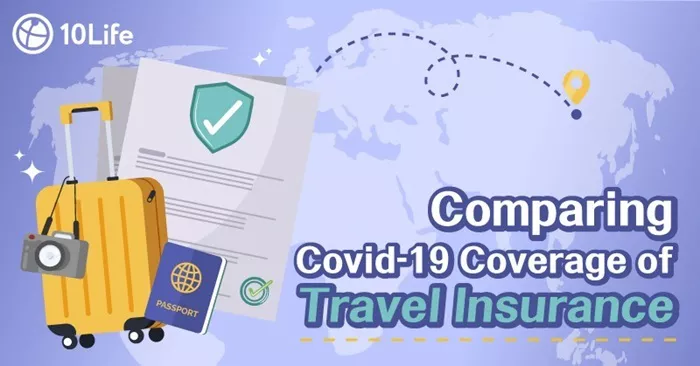Traveling brings excitement and adventure, but it can also come with risks. Holiday insurance, or travel insurance, provides essential coverage for unexpected events that can disrupt your plans. This comprehensive guide explores everything you need to know about obtaining holiday insurance, ensuring you make informed decisions for your travels.
1. Understanding Holiday Insurance
1.1. What is Holiday Insurance?
Holiday insurance is designed to protect travelers against financial losses due to unexpected events before or during their trips. This can include trip cancellations, medical emergencies, lost luggage, and more. Understanding the various components of holiday insurance is crucial for selecting the right policy for your needs.
1.2. Types of Coverage
Trip Cancellation Insurance: Covers non-refundable expenses if you need to cancel your trip due to unforeseen circumstances.
Medical Coverage: Essential for covering medical emergencies, hospital stays, and evacuation costs while traveling.
Baggage Loss and Delay: Compensates for lost, stolen, or delayed baggage, helping you replace essential items quickly.
Personal Liability: Covers legal expenses if you are held responsible for injury or damage to property during your trip.
2. Eligibility for Holiday Insurance
2.1. Who Can Get Holiday Insurance?
Most travelers are eligible for holiday insurance, but specific criteria may vary by provider. Generally, anyone planning a trip—whether for leisure, business, or adventure—can apply for coverage.
2.2. Age Considerations
Insurance providers may have age limits for policyholders. Many policies are available for travelers of all ages, but senior travelers may face higher premiums or additional requirements.
2.3. Pre-Existing Conditions
Travelers with pre-existing medical conditions may encounter challenges when seeking coverage. Some providers may exclude these conditions from their policies, while others offer specialized coverage. It’s essential to disclose all medical history when applying.
3. When to Get Holiday Insurance
3.1. Before Booking Your Trip
3.1.1. Booking with Confidence
Consider purchasing holiday insurance as soon as you book your trip. Many policies allow for coverage against trip cancellations, providing peace of mind before departure.
3.1.2. Coverage for Pre-Departure Risks
By obtaining insurance early, you can protect yourself from financial losses related to booking costs, including flights and accommodations.
3.2. After Booking but Before Travel
3.2.1. Last-Minute Insurance Options
If you didn’t purchase insurance at the time of booking, it’s crucial to do so before your departure. Ensure you review policy details to understand what is covered.
3.2.2. Changes in Circumstances
If your situation changes—such as a health issue or travel restrictions—consider acquiring holiday insurance promptly to cover these new risks.
3.3. While Traveling
3.3.1. Emergency Situations
If you find yourself in an emergency while traveling and are not insured, seek out travel insurance that provides immediate coverage. Some providers offer short-term policies activated quickly.
3.3.2. Extending Coverage
If you decide to extend your trip or alter your plans, consider adding coverage for the additional days. Always check with your insurance provider for available options.
See Also: When Should I Take Out Holiday Insurance? A Full Guide
4. How to Get Holiday Insurance
4.1. Researching Providers
4.1.1. Exploring Options
Take time to research different insurance providers. Read reviews and check their financial stability and customer service ratings.
4.1.2. Comparing Policies
Review various policies side by side, focusing on coverage types, limits, and premiums. This will help you find a policy that fits your needs.
4.2. Applying for Coverage
4.2.1. Application Process
Applying for holiday insurance typically involves filling out an online form or speaking with an agent. You’ll need to provide details about your trip, health status, and any pre-existing conditions.
4.2.2. Understanding the Fine Print
Before finalizing your policy, read the terms and conditions carefully. Understand what is and isn’t covered to avoid surprises later.
4.3. Costs of Holiday Insurance
4.3.1. Premiums and Deductibles
Holiday insurance premiums vary based on factors like trip length, destination, age, and health. A higher deductible may lower your premium, but ensure you can afford the deductible in case of a claim.
4.3.2. Additional Fees
Be aware of any extra fees associated with your policy, such as those for pre-existing conditions or specific activities.
5. Common Misconceptions About Holiday Insurance
5.1. “I Don’t Need Insurance If I’m Healthy”
Many travelers believe that good health negates the need for insurance. However, unexpected events can happen to anyone, making travel insurance essential.
5.2. “My Credit Card Covers Everything”
While some credit cards offer travel insurance, these policies often come with limitations. Always verify what is covered and consider additional insurance if necessary.
6. The Importance of Reading the Fine Print
6.1. Understanding Policy Details
Before purchasing, carefully read the fine print to grasp the terms and conditions. Look for clauses that may affect your coverage during your trip.
6.2. Asking Questions
If you have doubts or questions, contact the insurance provider for clarification. Knowing exactly what you’re buying can prevent issues later.
7. Conclusion
Obtaining holiday insurance is a crucial step in ensuring a smooth and enjoyable travel experience. By understanding your eligibility, when to purchase insurance, and how to get the right coverage, you can protect yourself against unforeseen events. As travel continues to evolve, being informed about your insurance options will help you navigate the complexities of planning with confidence.
This structure provides a comprehensive overview and can be expanded with detailed examples, statistics, and case studies to meet the desired word count. If you need further elaboration on specific sections or additional content, just let me know!






















